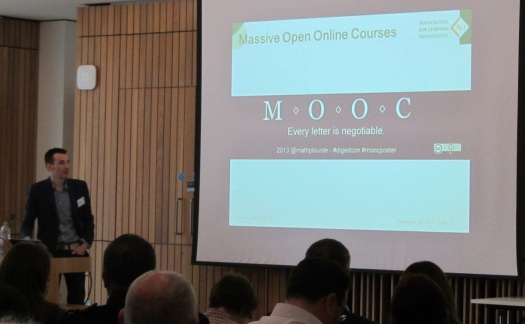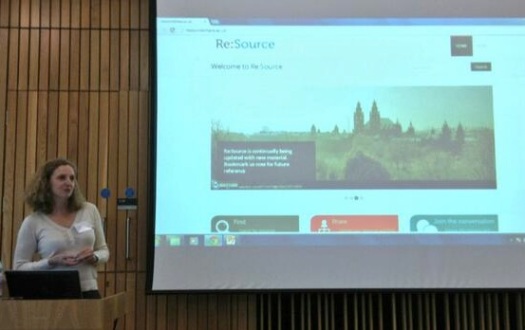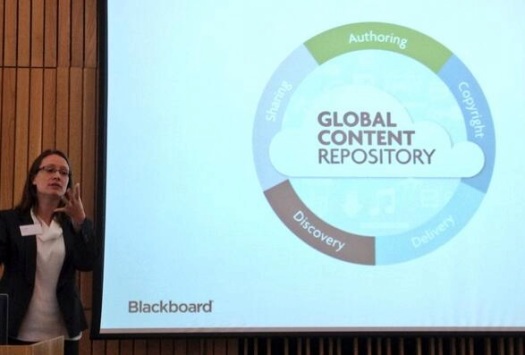This report, which is based on a paper presented by Lorna M. Campbell, OER Liaison – Open Scotland, at the ALT Conference at the University of Warwick in September 2016, provides an overview of a number of open education initiatives taking places across different sectors of Scottish education throughout 2016. This report was previously published by the Open Knowledge Open Education Group.
Open Scotland
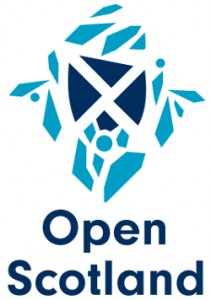 Open Scotland is a cross sector initiative that aims to raise awareness of open education, encourage the sharing of open educational resources, and explore the potential of open policy and practice to benefit all sectors of Scottish education. The initiative was launched in 2013 and was originally supported by Cetis, ALT, SQA and the Jisc RSC Scotland. Since 2015, the University of Edinburgh has provided a home for Open Scotland, with additional support provided by the ALT Scotland SIG. Open Scotland maintains a blog which acts as a focal point to engage the community and disseminate news and developments relating to all aspects of openness in education in Scotland and further afield.
Open Scotland is a cross sector initiative that aims to raise awareness of open education, encourage the sharing of open educational resources, and explore the potential of open policy and practice to benefit all sectors of Scottish education. The initiative was launched in 2013 and was originally supported by Cetis, ALT, SQA and the Jisc RSC Scotland. Since 2015, the University of Edinburgh has provided a home for Open Scotland, with additional support provided by the ALT Scotland SIG. Open Scotland maintains a blog which acts as a focal point to engage the community and disseminate news and developments relating to all aspects of openness in education in Scotland and further afield.
Scottish Open Education Declaration
Open Scotland also supports the Scottish Open Education Declaration an open community draft based on the UNESCO OER Declaration which broadens the scope of the guidelines to encompass all aspects of open education. The ALT Scotland SIG has contacted previous Scottish Government education minsters, Mike Russell and Angela Constance to raise awareness of the Declaration, and in both instances met with an encouraging but non-committal response. In May 2016, following a Cabinet reshuffle, John Swinney was appointed as the new Cabinet Secretary for Education and the ALT Scotland SIG will bring the Declaration to his attention in the autumn.
Although the Scottish Open Education Declaration has not yet gained traction within Scotland it has generated considerable interest elsewhere in Europe, particularly in Slovenia where the Slovenian government are exploring the potential of adopting it.
Scottish Government
 Although the Scottish Government allocated a substantial amount of funding to the Open University’s Opening Educational Practices in Scotland Project in 2014, there have been no further open education funding initiatives and open education does not appear to be high on the political agenda. At best, open education is seen as being somewhat peripheral to Scottish Government priorities, primarily due to the perceived lack of a statistical evidence base supporting the impact of open education on learners.
Although the Scottish Government allocated a substantial amount of funding to the Open University’s Opening Educational Practices in Scotland Project in 2014, there have been no further open education funding initiatives and open education does not appear to be high on the political agenda. At best, open education is seen as being somewhat peripheral to Scottish Government priorities, primarily due to the perceived lack of a statistical evidence base supporting the impact of open education on learners.
Opening Educational Practices inn Scotland Project
 The Open University’s OEPS project, which runs from 2014 – 2017, is funded by the Scottish Funding Council and aims to facilitate best practice in open education in Scotland. The project undertakes a wide range of activities include running workshops and events, providing expert guidance, collating case studies and supporting open practice communities. The project has been particularly successful in engaging with third sector organisations including Scottish Union Learning and Pakinson’s UK. OEPS recently launched a number of open courses developed in collaboration with partners including Understanding Parkinson’s with Parkinson’s UK; My Seaweed Looks Weird, with UHI and the Scottish Association for Marine Science; and Becoming an Open Educator.
The Open University’s OEPS project, which runs from 2014 – 2017, is funded by the Scottish Funding Council and aims to facilitate best practice in open education in Scotland. The project undertakes a wide range of activities include running workshops and events, providing expert guidance, collating case studies and supporting open practice communities. The project has been particularly successful in engaging with third sector organisations including Scottish Union Learning and Pakinson’s UK. OEPS recently launched a number of open courses developed in collaboration with partners including Understanding Parkinson’s with Parkinson’s UK; My Seaweed Looks Weird, with UHI and the Scottish Association for Marine Science; and Becoming an Open Educator.
Glasgow Caledonian University
 Glasgow Caledonian University became the first university in Scotland to approve an interim open education resources policy in 2015. The policy defines what OERs are, explains why GCU supports their creation, sharing and use, and gives advice on how to cite third party resources. GCU Library is now undertaking advocacy work and providing training to raise awareness of OER and the policy. The University has also recently established the EdShare repository to manage teaching and learning resources; 300 resources have been deposited in the first 6 months of which 40% are open access.
Glasgow Caledonian University became the first university in Scotland to approve an interim open education resources policy in 2015. The policy defines what OERs are, explains why GCU supports their creation, sharing and use, and gives advice on how to cite third party resources. GCU Library is now undertaking advocacy work and providing training to raise awareness of OER and the policy. The University has also recently established the EdShare repository to manage teaching and learning resources; 300 resources have been deposited in the first 6 months of which 40% are open access.
University of Edinburgh
 University of Edinburgh’s has also approved an OER policy, which encourages staff and students to make informed decisions about using, creating and publishing OERs to enhance the quality of the student experience. This policy is underpinned by an OER vision which builds on the history of the Edinburgh Settlement, excellent education and research collections, traditions of the Enlightenment and the University’s civic mission. The University also has an OER Service which undertakes a wide range of activities that support staff and students to engage with OER, and help the institution to mainstream digital education across the curriculum.
University of Edinburgh’s has also approved an OER policy, which encourages staff and students to make informed decisions about using, creating and publishing OERs to enhance the quality of the student experience. This policy is underpinned by an OER vision which builds on the history of the Edinburgh Settlement, excellent education and research collections, traditions of the Enlightenment and the University’s civic mission. The University also has an OER Service which undertakes a wide range of activities that support staff and students to engage with OER, and help the institution to mainstream digital education across the curriculum.
 Rather than implement an OER repository, the University of Edinburgh releases OERs through a wide range of platforms, including flickr, TES, YouTube, Sketchfab, Wikimedia Commons and Media Hopper, the institution’s own media asset management platform. These resources are then aggregated into the University’s one stop shop for open education resources, Open.Ed.
Rather than implement an OER repository, the University of Edinburgh releases OERs through a wide range of platforms, including flickr, TES, YouTube, Sketchfab, Wikimedia Commons and Media Hopper, the institution’s own media asset management platform. These resources are then aggregated into the University’s one stop shop for open education resources, Open.Ed.
 Edinburgh also recently became the first University in Scotland to employ a dedicated Wikimedian in Residence. As an advocate for openness the Wikimedian in residence delivers training events and workshops to further the quantity and quality of open knowledge and enhance digital literacy through skills training sessions and editathons, and redress the gender imbalance of contributors by encouraging more women to engage with Wikimedia and enhance the coverage of articles about women.
Edinburgh also recently became the first University in Scotland to employ a dedicated Wikimedian in Residence. As an advocate for openness the Wikimedian in residence delivers training events and workshops to further the quantity and quality of open knowledge and enhance digital literacy through skills training sessions and editathons, and redress the gender imbalance of contributors by encouraging more women to engage with Wikimedia and enhance the coverage of articles about women.
Edinburgh’s efforts in supporting open education were recognized earlier this year, when the University was awarded Wikimedia UK’s Partnership Award for hosting the OER 16 Open Culture Conference, and the Association for Learning Technology awarded the Open Education Team third place in the Learning Technologist of the Year team awards.
University of Dundee
 Although Dundee has not yet approved an OER policy, the University is hoping to progress to one in the future. Dundee are currently sharing open licensed student developed content through Vimeo and Flickr channels, including a showcase of OER from Masters in Medical Art students The School of Dentistry is also using Sketchfab to share CC licensed dental models developed by students
Although Dundee has not yet approved an OER policy, the University is hoping to progress to one in the future. Dundee are currently sharing open licensed student developed content through Vimeo and Flickr channels, including a showcase of OER from Masters in Medical Art students The School of Dentistry is also using Sketchfab to share CC licensed dental models developed by students
MOOCs
Many Scottish universities have developed MOOCs which are running on a number of commercial platforms including FutureLearn, Coursera and EdX. Although MOOCs are a significant part of the open education landscape, engaging with MOOCs does not necessarily equate to engaging with open education. Only two universities that run MOOCs have developed an OER policy, however anecdotal evidence suggests that a number of institutions are rethinking their MOOC production strategies with a view to making the process more open and sustainable.
FE Sector
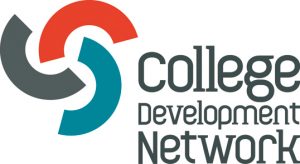 The FE sector is still bedding down after the upheaval of regionalization and mergers. As a result merging institutional systems and creating shared infrastructure has become a priority, however engagement with open education is low. The Re:Source OER repository previously hosted by Jorum has been moved to a new repository ResourceShare, supported by the College Development Network. However while the sector is accepting of open educational practice and OER in theory, colleges tend to be cautious in actual practice and there is more interest in the walled garden approach to sharing educational content. The is some interest in the Blended Learning Consortium led by Heart of Worcestershire College and a number of Scottish colleges have subscribed to join the closed consortium.
The FE sector is still bedding down after the upheaval of regionalization and mergers. As a result merging institutional systems and creating shared infrastructure has become a priority, however engagement with open education is low. The Re:Source OER repository previously hosted by Jorum has been moved to a new repository ResourceShare, supported by the College Development Network. However while the sector is accepting of open educational practice and OER in theory, colleges tend to be cautious in actual practice and there is more interest in the walled garden approach to sharing educational content. The is some interest in the Blended Learning Consortium led by Heart of Worcestershire College and a number of Scottish colleges have subscribed to join the closed consortium.
Jisc
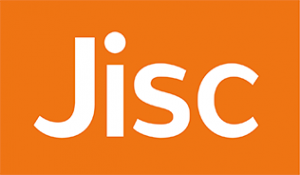 Jisc announced the retirement of the national Jorum OER repository in 2015 and the service will finally close at the end ofSeptember 2016. Jorum customers have the option of migrating copies of their content from the repository and selected resources are being migrated to the new Jisc App and Resource Store which will host free and open licensed content alongside paid for content. It remains to be seen how receptive the sector are to this approach with some within the open education community cautioning against the risk of open washing.
Jisc announced the retirement of the national Jorum OER repository in 2015 and the service will finally close at the end ofSeptember 2016. Jorum customers have the option of migrating copies of their content from the repository and selected resources are being migrated to the new Jisc App and Resource Store which will host free and open licensed content alongside paid for content. It remains to be seen how receptive the sector are to this approach with some within the open education community cautioning against the risk of open washing.
ALT
 The Association for Learning Technology is playing and increasingly active role in supporting open education in Scotland. In addition to supporting the Open Scotland initiative, the ALT Scotland SIG liaises with the OEPS Project, hosts annual events to showcase the use of education technology and open education across sector, brings together policy makers at an annual policy summit and raises awareness of open education at Scottish Government level.
The Association for Learning Technology is playing and increasingly active role in supporting open education in Scotland. In addition to supporting the Open Scotland initiative, the ALT Scotland SIG liaises with the OEPS Project, hosts annual events to showcase the use of education technology and open education across sector, brings together policy makers at an annual policy summit and raises awareness of open education at Scottish Government level.
National Library of Scotland
 The National Library of Scotland launched a new strategy in 2015 and continues to review its open licensing policy with a view to making more of the library’s collections openly available. All images up to 1000px, core metadata and OCR scanned resources are now licensed CC BY, unless the library does not own the copyright, metadata supplied to Europeana is licensed CC0 and high resolution images, extended metadata and manually transcribed resources are licensed CC BY NC SA. In addition, the Library is planning to share more images through Wikimedia Commons.
The National Library of Scotland launched a new strategy in 2015 and continues to review its open licensing policy with a view to making more of the library’s collections openly available. All images up to 1000px, core metadata and OCR scanned resources are now licensed CC BY, unless the library does not own the copyright, metadata supplied to Europeana is licensed CC0 and high resolution images, extended metadata and manually transcribed resources are licensed CC BY NC SA. In addition, the Library is planning to share more images through Wikimedia Commons.
Summary
there is significant engagement with open education within individual institutions across Scotland, the Scottish Government has yet to recognise the value of open education to expand access to education, widen participation, and support social inclusion. However 2017 marks the anniversary of two significant open education initiatives; the tenth anniversary of the Cape Town Declaration and the fifth anniversary of the UNESCO OER Declaration. These anniversaries will be marked by significant global events and it is possible that these can be leveraged to raise awareness of the value of open education within the Scottish Government and to drive forward the development of national open education policy.
Acknowledgements
With thanks to Sarah Cornelius, University of Aberdeen; Sam Coulter, University of West Scotland; Linda Creanor, Glasgow Caledonian University; Kerr Gardiner, University of Glasgow; Marion Kelt, Glasgow Caledonian University; Natalie Lafferty, University of Dundee; Kenjij Lamb, College Development Network; Joe Wilson, joewilson.net


